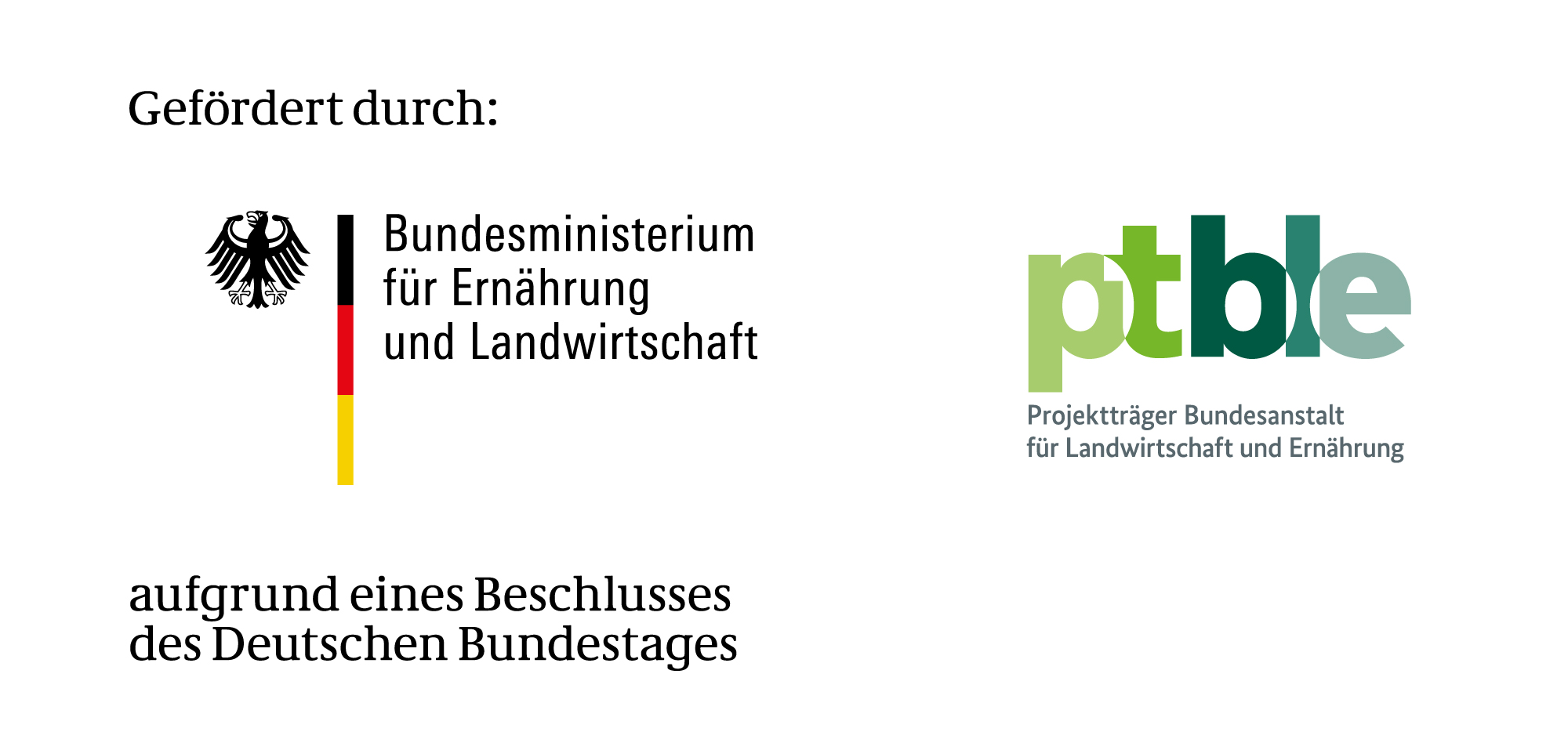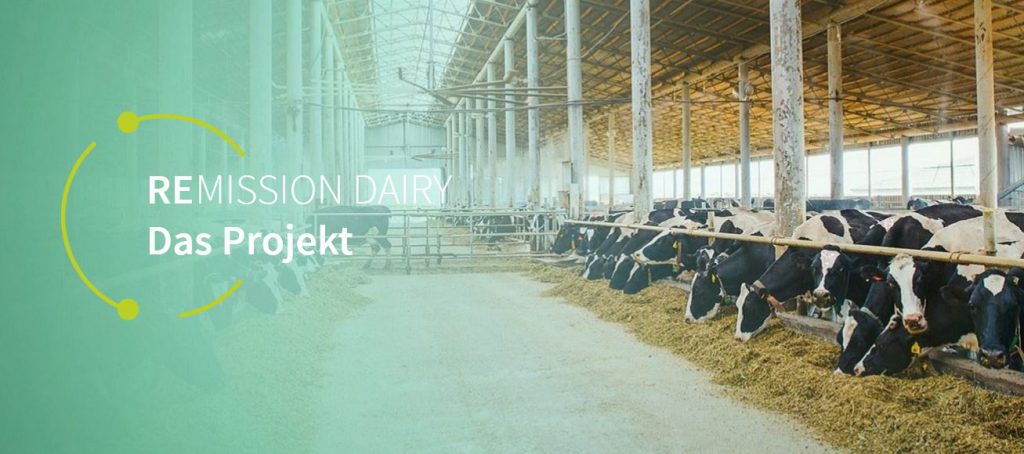We are part of the 3-year BLE innovation project ReMissionDairy for efficient dairy cow feeding.
These are the goals of ReMissionDairy

In view of global structural developments and climate change, strategies to increase production efficiency and minimize climate and environmental impacts are being called for in agriculture, particularly in animal production. The joint project ReMissionDairy is responding to this appeal: With the help of innovative feed controlling and management, feeding efficiency is to be increased and methane emissions from dairy farming reduced. The aim of ReMissionDairy is therefore to set up a web platform that supports feeding strategies to reduce methane and nitrogen emissions and thus increase efficiency in dairy farming.
The planned innovative web platform is intended to serve as a basis for independent feed controlling and management on the farm and to provide current key efficiency figures. In this way, ReMissionDairy supports farmers throughout Germany in making information-based management decisions at animal group and herd level. Optimization measures can be planned and implemented in a targeted manner, taking animal health aspects into account. In this way, production efficiency can be sustainably increased on an individual farm basis and the environmental impact of the individual farm can be reduced.
Precise feeding data will be collected and evaluated over two years on 30 pilot farms, which will receive intensive support as part of a feeding consultation. The data on feeding is combined with data from the milk performance test and milk quality test as well as other animal-related data. The cow’s energy status and methane emissions are estimated on the basis of milk MIR spectra. The results from the calculation of performance, emission and feeding parameters are used to calculate potential savings. In this way, the ReMissionDairy web platform can support farmers and feed consultants in increasing feed efficiency.
The project team
ReMissionDairy is a joint project in which experts from science and industry contribute their know-how and experience. The project team comprises the following partners: Vereinigte Informationssysteme Tierhaltung w. V. (vit), Deutscher Verband für Leistungs- und Qualitätsprüfungen e. V. (DLQ), Christian-Albrechts-Universität zu Kiel, the state control associations in Baden-Württemberg, Mecklenburg-Vorpommern, Saxony and Weser-Ems as well as the two companies agrosom and us, fodjan.

